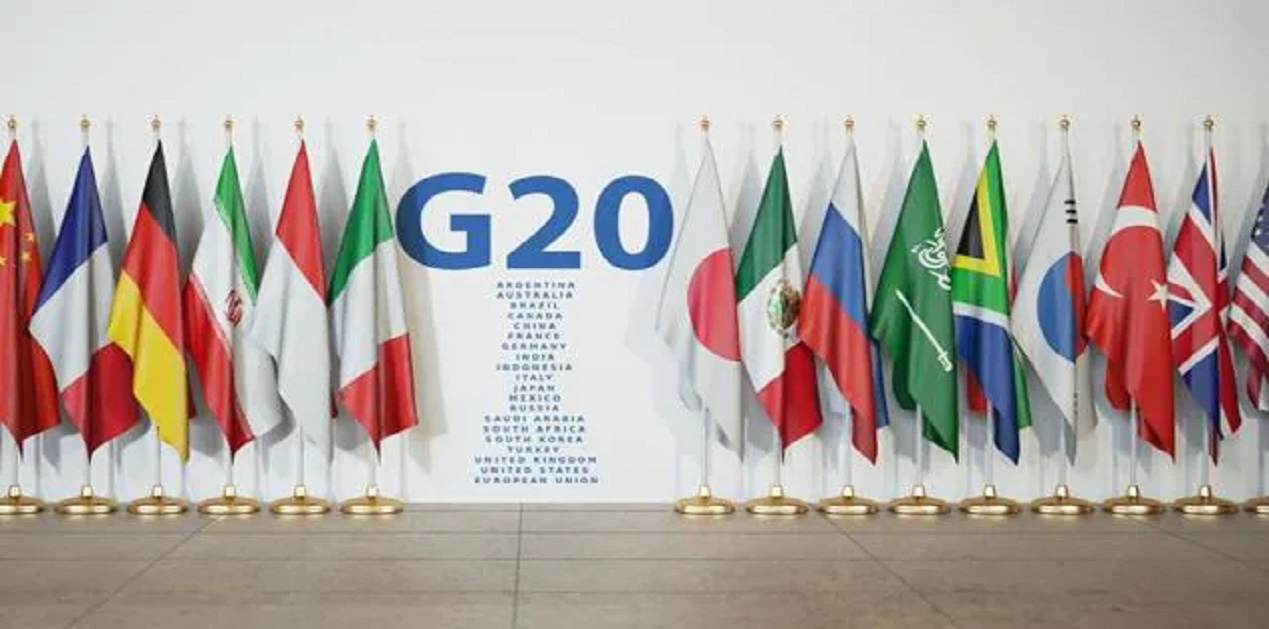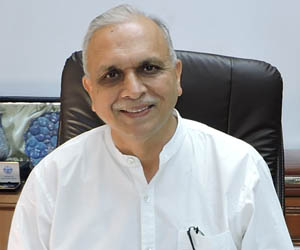India will take over the presidency of the G20 from Indonesia in November 2022 for one year. This is a rare opportunity for India to shape G20 agenda and leave a mark. However, that will be a challenging task.
Disorder
The world is becoming an increasingly disorderly place. Geopolitical tensions are rising sharply. The chances of a wider conflict engulfing the world cannot be ruled out. Some of the G20 members are at loggerheads with each other on a number of issues. The threat of global recession is looming large. The Covid 19 pandemic has left scars that will take a long time to heal. Despite the Paris Climate Change agreement, greenhouse gas emissions are rising and the world is on course to cross the 1.5 degrees Celsius global mean temperature rise. The transition to clean energy is proving to be extremely arduous for most countries. The emerging technologies, despite theirbenefits, come with the risk of destabilization. The concerns over health, food, water, and energy security are growing. The stability of the global financial system is at risk as several countries face the problem of mounting debts and debt repayment defaults. The G20 will have to navigate these risks to global order.
The G20 is not new to crises. It was born in 1998 in the wake of the Asian financial crisis when the finance ministers and central bank governors of 20 economically significant countries met for the first time and agreed to coordinate their responses to the crisis. A decade later, the level of the G20 was raised to that ofheads of states and governments. They first met in November 2008 in Washington and a few months later in London in 2009. Showing extraordinary solidarity, they agreed on USD 4 trillion stimulus measures for reviving the sinking economies, removing trade barriers and reforming the global financial institutions. The G20 acquired formidable reputation of being an effective organization, more representative than G7, which is seen as rich man’s club only.
The Expanding Agenda
Sinceinception in 2008, sixteen G20 summits have been held. In the beginning the leaders met even twice a year. While G20 finance and central bank governors continue to deliberate over global financialarchitecture and coordination over financial issues, the agenda of G20 has expanded manifolds. The group now discusses geopolitical issues like the Iranian nuclear programme and Syria and also elaborates on climate change, health, agriculture, environment, migrations, data, technology, trade and investment and many more. The list is ever growing. There is a genuine concern that G20 may degenerate into a mere talk shop like many others.
Every presidency seeks to add more ideas while older issues are forgotten or relegated to mere statements. The G20 has no permanent secretariat. Every presidency sets up a secretariat for a year which hosts hundreds of meetings during the course of the presidency. Meetings and summits are an elaborate affair. The summits often draw huge media attention. It is difficult to keep track of what all has been discussed. There is no accountability fornon-implementation as the G20 is not an executive authority.
Yet, it will be unfair to single out the G20 alone for being a talk shop. The same criticism can be leveled against many others. The UN system is becoming increasingly dysfunctional with leading institutions suffering from policy paralysis. This became evident during the covid crisis when a quick and coordinated response from the UN organizations was missing even as hundreds of millions people lost jobs worldwide and a large numbers were pushed into poverty. Even today there is considerable vaccine inequity in the world.
Although multilateralism is in a deep crisis, it is important to keep it going through regular engagement and dialogue. The organisations like the G20 fill the gaps in multilateralism to some extent. Global issues cannot be resolved without cooperation. Just to meet and discuss these issues seems better than being disconnected. The G20, being a grouping of countries representing 85percent of global GDP, 75 percent of global trade and 60 percent of world’s population is a non-ideological forum. It comprises of Argentina, Australia, Brazil, Canada, China, France, Germany, India, Indonesia, Italy, Japan, Republic of Korea, Mexico, Russia, Saudi Arabia, South Africa, Turkey, the United Kingdom, the United States, and the European Union. Spain is also invited as a permanent guest. At some stage it may be expanded to include countries like Vietnam. It has done well in the past. It can influence the discourse on global governance. But it is important that it shows solidarity not only among its members but also with the rest of the world.
Tasks before India
Presently Indonesia is the chairperson of G20. The presidency will pass on to India in November 2022 for one year. Thereafter, Brazil will become the president. This is the first time in the G20’s history that three developing counties will hold its presidency consecutively for three years. This is an opportunity to bring G20 focus on the issues of developing countries.
As its president, India will have the responsibility to shape the agenda and steer the G20 to a successful conclusion. At the end of India’s presidency, hopefully the leaders would be able to adopt a consensus joint statement. This will require considerable negotiating skills and a power of persuasion on the part of India. Let us remind ourselves that during the Saudi presidency, President Trump stuck to America First line and refused to accept G20 line on climate change, covid, migrations and trade. Given the prevailing tensions between US and Russia and US and China, it remains to be seen whether the G20 will agree on a common statement. Indonesia is likely to face this challenge soon. It may also be hard to get the US, Chinese and Russian leaders to attend the summit in person.
The next task before India will be to raise the voice of developing countries on issues of concern to them. It is no secret that developed countries and developing countries have sharp differences over climate change, trade and investment, reform of the international financial issues, environment and a host of other such issues. G20 summits have usually been dominated by Western narratives. India can try and change that trend and forcefully argue for a new world order in which developing countries have an equal say.
Finally, India should be able to raise issues which are of it concerns itself. It would have to do so in a judicious manner so as not to raise the hackles of other countries. The best way would be to engage informally with individual countries, even those outside the G20 tent, in a dialogue on building consensus on tricky issues.
Previous Presidencies
The G20 is already enged with a plethora of issues. Its agenda is full. The G20 discussions have a momentum of their own. For instance, the Financial Stability Board, the group of finance ministers and central bank governors of the G20 countries, focus on global economic and financial health. Their discussions are often technical. They issues advisories for the governments and also for international financial institutions. India can help shape the ongoing discussion on various questions. In the recent years each presidency brought several issues to the table. For instance, the priorities of Indonesian presidency have been global health, digital transformation, and sustainable energy transition.
The Italian presidency focussed on health as a global common, shaping the recovery from the pandemic, supporting vulnerable economies and protecting the planet. For Saudi presidency the priorities were empowering people especially women and youth, safeguarding the planet by protecting the global commons and shaping new frontiers by sharing benefits of innovation and technological advancement. At the 2019 G20 Summit at Osaka, Japan highlighted eight themes: to ensure global sustainable development, global economy, trade and investment, innovation, environment and energy, employment, women's empowerment, development and health. Osaka declaration called for a free flow of data across the borders. This shows that the G20 is already engaged with the contemporary issues.
Themes for Indian Presidency
India needs to closely study the outcome of previous summits and carry forward the already agreed agenda, including the G20 Action Plan. At the same time, it should bring some new issues to the table. The government’s thinking was reflected in its answer to a parliament question in April 2022 where it said, “ As the G20Presidency, India will be in a position to identify, highlight, develop and strengthen international support for priorities of vital importance to developing countries in diverse social and economic sectors, ranging from energy, agriculture, trade, digital economy, health and environment to employment, tourism, anti-corruption and women empowerment, including in focus areas that impact the most vulnerable and disadvantaged.” These issues are already on the G20 agenda.
So what are the issues India can bring to the table? What should be the overriding theme of Indian presidency? India can shape the agenda by bring the following issues to the table:
- The world is reeling under the impact of unilateral sanctions. As recent developments have shown, their indiscriminate use can disrupt global systems and cause enormous pain and misery to the whole world. The recent surge in oil, food and commodity prices due to geopolitical tensionscan tip the world into recession. The effectiveness of the sanctions is highly questionable. India can initiate a discussion on sanctions at the G20.
- For India, capacity building in diverse areas, education and skills are crucial for its growth. But these are not the issues of concern to the developed countries. Can G20 suggest a global fund to help in capacity building? The G20 can suggest a UN summit on capacity building.
- Climate change is already being discussed at the G20. Paris climate change agreement will remain an empty shell without the developed countries assuming their historic responsibility for emissions and accepting the need for climate justice. India should highlight the urgency of helping the developing countries in making a smooth transition to clean energy. The West should be persuaded to implement its commitment to mobilise USD 100 billion per year to help the developing countries. The West has also been reluctant to transfer technology. These issues are vital to India and the developing countries. The G20 must suggest how to raise the financial and technological resources needed for climate mitigation strategies.
- Due to Covid, the implementation of the UN Sustainable Development Goals (SDGs) has received a setback. More than half a billion people were pushed further into extreme poverty due to health care costs. About 800 million are facing acute hunger. The G20 can argue for additional resources for the implementation of UN sustainable development goals.
- India has considerable experience of digital transformation of the economy. Yet, bridging the digital divide and ensuring cyber security remains a challenge. India can bring this issue to the table.
- Cybercrime is growing at an alarming rate. According to some estimates, global cybercrime damage in 2021 amounted to USD 16.4 billion a day that comes to a whopping USD 6 trillion annually! Cyber criminals can undermine the global financial stability. Recently, India supported the idea of a UN cybercrime convention. At the G20 India can help formulate a G20 strategy on cybercrime.
- India has been at the forefront of fight against terrorism. It has given several suggestions for fighting terror financing, drug trafficking and radicalisation. Social media has played an extremely negative role in spreading hate and religiophobia. The international community talks about the Islamophobia and the phobia against Christianity but is silent when it comes to hate against other religions like Hinduism and Buddhism. The G20 should formulate a strategy on terrorism, radicalisation and hate against all religions. India should muster support for a UN convention on international terrorism which it has been advocating for a long time.
- Finally, India can argue for a G20 outreach to other regional organizations to build common positions on global issues. India can invite some of these organizations (AU, SCO, ASEAN, BIMSTEC) to the G20 summit.
Prime Minster Modi has repeatedly articulated that India aspires to be a force for global good. India’s philosophy is to engage the world and aspire for global peaceand global health. It would not be out of place if India puts forward Vasudhaiva Kutumbakam and Sarve Bhavantu Sukhinah as the overarching theme for its G20 presidency. These two Sanskrit phrases should become mainstream expressions in international politics. No one possibly can have objection to them.
Conclusion
As the old international order frays, a new consensus is needed for a new international order. It will not be easy to build such a consensus but efforts need to start now. G20 is an ideal forum to discuss and debate these issues. India can take lead in bringing these issues to the table during its presidency.
(The paper is the author’s individual scholastic articulation. The author certifies that the article/paper is original in content, unpublished and it has not been submitted for publication/web upload elsewhere, and that the facts and figures quoted are duly referenced, as needed, and are believed to be correct). (The paper does not necessarily represent the organisational stance... More >>
Image Source: https://images.hindustantimes.com/rf/image_size_630x354/HT/p2/2020/11/23/Pictures/members-summit-countries-meeting-concept-group-twenty_743d2d16-2d6e-11eb-86db-632b3adc38eb.jpg











Post new comment